Border Agents, Traffickers And Migrants Mix On The Busy Rio Grande
The sun has barely set when Mexican traffickers inflate their boat, load 15 migrants on board, yelling at the kids to stop crying, and then row in a frenzy across the Rio Grande, landing on US soil in just a few minutes.
The same scene has been playing out almost daily for two months, sometimes right through the night. In the first half hour of darkness on Sunday, four inflatable boats with about 50 undocumented immigrants from Honduras and Guatemala arrived in Roma, Texas, almost simultaneously.
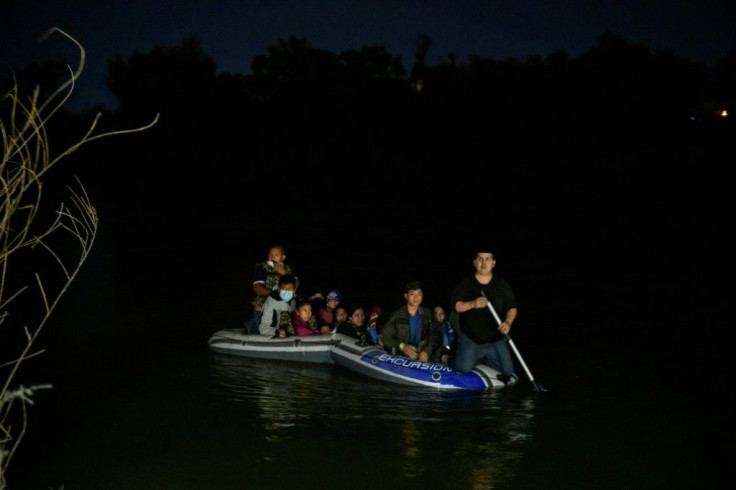
US agents from the Customs and Border Patrol (CBP) often converse and even exchange shouted jokes with smugglers on the Mexican side of the river, but do not try to stop them if they do not set foot on US soil.
When the migrants arrive -- at times in the hundreds, and many of them minors traveling alone -- there are sometimes no agents left on the river banks to process them.
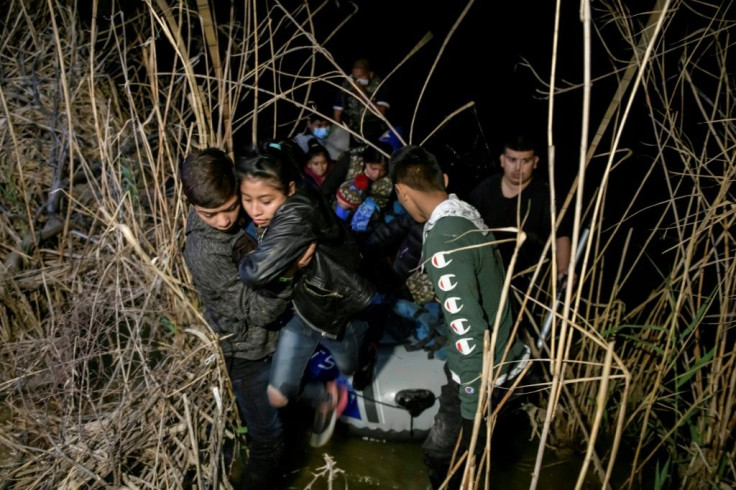
The CBP agents will instead stop them half a mile away, at the end of a sandy trail that leads to this town of 11,000 in the Rio Grande Valley. Most migrants surrender voluntarily in the hopes of being granted asylum in the United States.
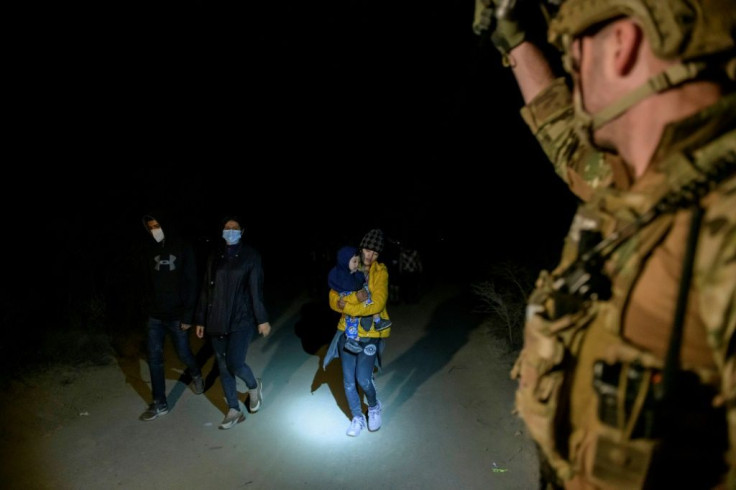
"Tell the agents not to hit my boat; we're bringing children, the river is deep, we have already taken off their vests, they should pay attention!" shouts 'Chuchi,' a 25-year-old trafficker as he paddles over to the US side, where there are at least five other punctured inflatable boats already on the sand or in thick bushes.
"Every day" there is a lot of work, 'Chuchi' tells AFP from his boat. "We have kids, just like you" and the work pays well, he says.

"It's better to work here than get involved in crime, isn't it?" says his partner, another "pollero" as human traffickers are known in Mexico.
When reminded that trafficking people is also a crime, he shrugs. "I have to support myself," he says. "I also have children; six US citizen children," he adds.
He does not give his name, and says he is afraid of getting caught.
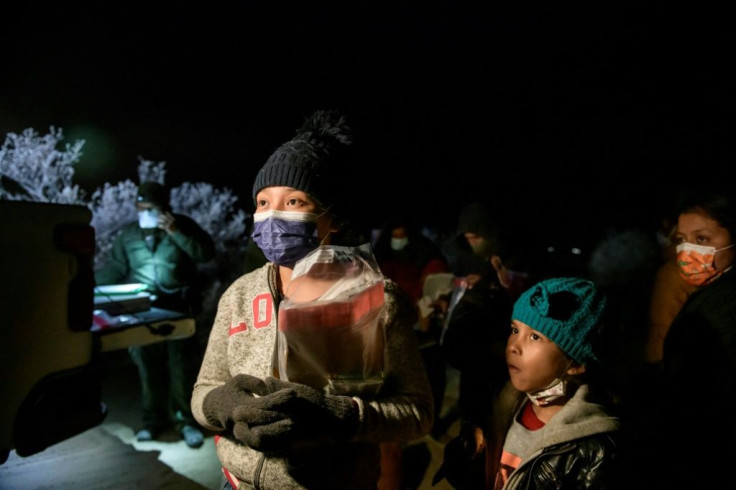
A life vest has got caught in the reeds a few feet from the US riverbank, and he does not dare get off the boat to retrieve it. "I can get off for it, but where is the 'migra'?" he asks fearfully, using the Mexican phrase for the border agents.
The "polleros" generally work in conjunction with drug cartels and in Miguel Aleman, the dangerous Mexican town facing Roma, the Gulf and Northeast cartels are active, according to Ivan Garza Junior, Roma's police chief.

The cartels often clash and bursts of automatic rifles can be heard on the US side of the border. The trafficker on the river says he works "for someone", but does not specify who.
Nearly 100,000 undocumented immigrants, mostly from Honduras, Guatemala and El Salvador, were detained by CBP in February, a level not seen since the arrival of large caravans in 2019.
Most were deported, said the administration of President Joe Biden, but in contrast to the policy of Biden's predecessor Donald Trump, minors who travel alone and many families are not being expelled.
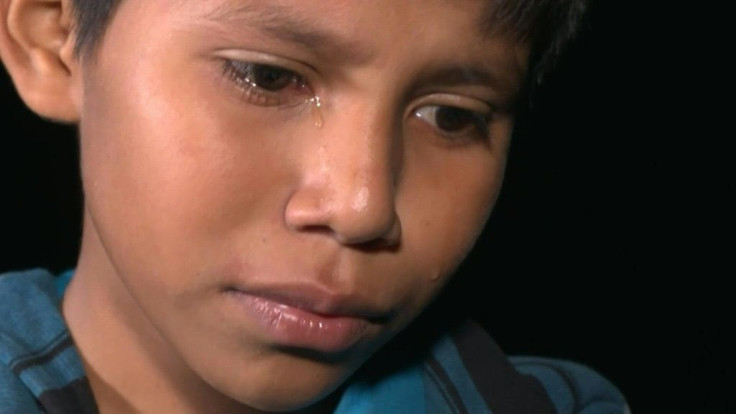
At dusk on Saturday evening, a CBP agent yelled a warning across the river to a smuggler not to cross with his migrants at that spot, because he would be stopped by the Texas state police.
"So where do you want them?" the shirtless "pollero" shouted back, in a moment of ironic banter.
The CBP agent responded in kind, showing where they could land.
"I'm not that keen," replied the trafficker across the river, and lit a cigarette. "Do you want to smoke marijuana?" he shouted back.
"When I retire!" joked the CBP agent in Spanish.
One of the recently disembarked migrants is Dani, a 42-year-old from Honduras who is traveling with his six-year-old daughter Daniela. He already made the same trip two weeks ago, to exactly the same place, but he was deported four days later by bus to Mexico.
Now he is trying again, with financial help from his sister who lives in New Orleans.
"My salary in Honduras was not enough to support my family," he says as he walks from the river to surrender to the CBP and apply for asylum.
No migrant wants to say how much the "polleros" charge.
Among the new arrivals are two Guatemalan sisters, aged seven and 13, who traveled alone for 15 days and are seeking to be reunited with their father in Virginia.
"My mother is ill and can no longer take care of us. She is hospitalized," says the older sister, Heidi. "I am happy that I am going to see my father. I don't remember him. He left Guatemala when I was just born."
But the little girl can't take it off.
The agent pulls out a huge knife and cuts it off.
"This job sucks," he says.
© Copyright AFP 2024. All rights reserved.





















